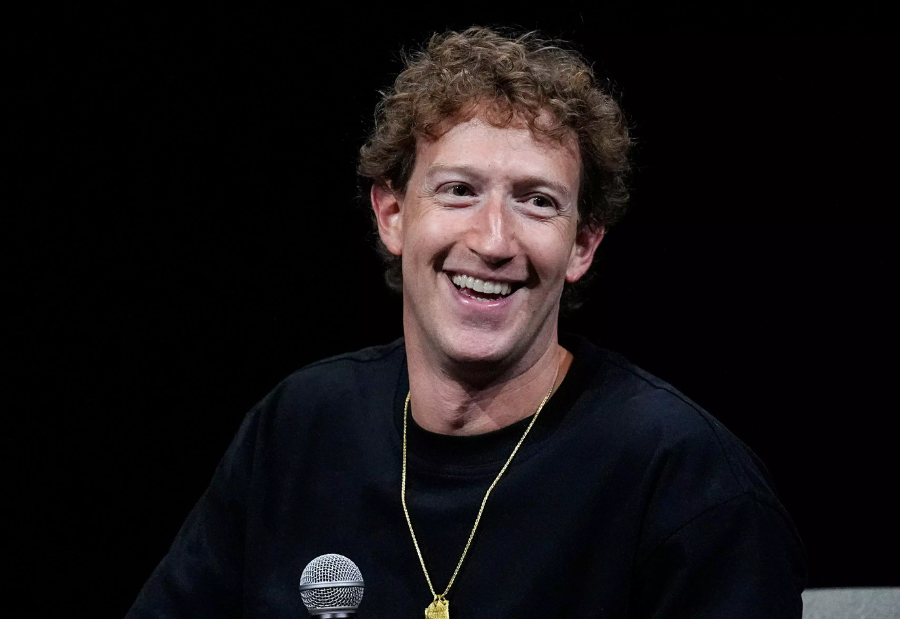Zuckerberg’s open-source experiment helped build Llama, attract talent—but monetization may be next
Mark Zuckerberg has never been shy about long-term bets. After spending $19 billion on WhatsApp, he waited nearly a decade before placing ads on the platform. Now, with Meta investing $65 billion this year into artificial intelligence infrastructure and aggressively hiring top talent, many expect him to soon start monetizing AI too—ending the era of Meta’s “free” AI.
At the heart of Meta’s AI push is Llama, its large language model built to rival OpenAI’s ChatGPT. Meta promoted Llama as “open source,” meaning its code was freely available for anyone to use, including competitors. Zuckerberg claimed this was about making AI accessible so that “everyone in the world benefits.” But many have doubted that, given his company’s history of monetizing user data.
What’s more likely is that open-sourcing Llama was a clever strategy—giving developers a free playground to improve the model, helping Meta gain from external contributions. Thousands of developers, believing in the promise of democratized AI, tested and built on Llama for free. That boosted its quality, attracted researchers eager for impact, and polished Meta’s image as a good actor in the AI race—even if Llama’s restrictive terms didn’t fully align with the spirit of true open source.
Critics who warned that Meta’s “open source” wasn’t truly open appear to have been right. Last year, Zuckerberg hinted at a shift, telling the Dwarkesh Patel podcast that it would be wrong to stay “dogmatic” about open-sourcing and that “if it became irresponsible” to share powerful models, “then we won’t.”
There’s still no clear answer on whether open-source AI is good or bad. On one hand, it challenges tech monopolies. On the other, it raises risks. For instance, Chinese military researchers reportedly used Llama to build their own tool, ChatBIT. Others developed “BadLlama”—a version stripped of safety measures—something not possible with closed models like ChatGPT.
Zuckerberg, now the world’s second-richest person after Elon Musk with a net worth of $256.4 billion (per Bloomberg), is likely hearing concerns from global policymakers about releasing powerful general-purpose AI to the public.
And he wouldn’t be the first to shift away from openness. OpenAI began as a non-profit promising full transparency but became more closed after major investments from Microsoft. Tech companies often start by offering products for free, only to monetize once they dominate the market.
Signs of Meta’s changing approach are clear. The hiring of Alexandr Wang, CEO of Scale AI, points to monetization plans. Zuckerberg is also said to be telling top AI talent—especially those he’s trying to recruit from rivals like OpenAI and Google—that upcoming models won’t be open-sourced once they reach “superintelligence.”
As Wang has reportedly told others during meetings and dinners, the idea of open AI may soon give way to tighter control.
Expect Zuckerberg to eventually announce that Meta’s newest models are too powerful to give away. His open-source experiment will have delivered—drawing talent, improving models, and building goodwill. But with Wall Street pushing for returns, the free phase is likely nearing its end.
Also read: Viksit Workforce for a Viksit Bharat
Do Follow: The Mainstream formerly known as CIO News LinkedIn Account | The Mainstream formerly known as CIO News Facebook | The Mainstream formerly known as CIO News Youtube | The Mainstream formerly known as CIO News Twitter |The Mainstream formerly known as CIO News Whatsapp Channel | The Mainstream formerly known as CIO News Instagram
About us:
The Mainstream formerly known as CIO News is a premier platform dedicated to delivering latest news, updates, and insights from the tech industry. With its strong foundation of intellectual property and thought leadership, the platform is well-positioned to stay ahead of the curve and lead conversations about how technology shapes our world. From its early days as CIO News to its rebranding as The Mainstream on November 28, 2024, it has been expanding its global reach, targeting key markets in the Middle East & Africa, ASEAN, the USA, and the UK. The Mainstream is a vision to put technology at the center of every conversation, inspiring professionals and organizations to embrace the future of tech.




